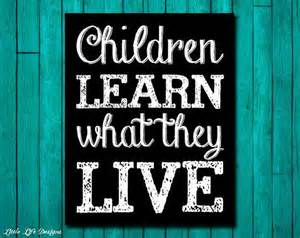真正的成功(六)

真正的成功 (六)
实际上,从上世纪九十年代,美国政府就开始在公立学校推行各种不同形式的“品格教育”(Character Education)。但2010年国家教育研究中心(National Center for Education Research)对美国小学应用最广的七种品格教程的跟踪调查显示,它们对学生的行为,学业成就,学校风气等没有任何显著提高。
学校的“品格教育”出发点很好,但数以百万计的人力物力投入下,为什么最后效果甚微呢?
十几年在公立学校的观察,我发现原因在于没有和“家庭教育”相结合。
孩子们的品格是积累于他们的习惯性行为,特别是如何看待自己,如何待人接物,如何诠释身边发生的事的习惯。 而这些习惯,很大程度上来自和父母在家里日复一日,年复一年的互动。学校墙上贴贴励志的标语,老师讨论一下案例,操场上制止不良解决问题方式等会辅助学生增强对品格的理解,但老师一年一换,教程也不固定,若没有家里一致的栽培,品格是不会真正生根结果的。
品格确实受孩子天生气质的影响。Stella Chess and Alexander Thomas (1977) 广为引用的研究发现,孩子的天生气质 (temperament),或者个性特点,大体表现在九个方面:
•activity level 喜静还是好动
•rhythmicity (regularity) 是否有规律
•approach or withdrawal 胆大还是易退缩
•adaptability 适应性
•threshold of responsiveness 挫折承受力
•intensity of reaction 反应程度强弱
•quality of mood 情绪乐观还是悲观
•distractibility 注意力长短
•persistence 能否坚持
(http://psych.colorado.edu/~colunga/P4684/temperament.pdf)
确实有孩子天生责任心强,做事有恒心,遇到困难心态更积极乐观。但心理学界几十年的研究发现,品格的可塑性,比起记忆力理解力等智力因素,强得多。比如儿时天生羞怯的孩子有30%左右在成人后敢作敢为。
经历困难,是坚持还是放弃?
面对冲突,是回避还是解决?
有挑战性的机会,是争取还是退缩?
孩子们的选择,除了天生性格的取向,无一不是基于过去经验和记忆的积累。正所谓“一朝被蛇咬,十年怕井绳。”曾经有一位高中生告诉我,她和姐姐天生喜爱音乐,但两人都不会再碰钢琴,原因就在于每次看到或想到钢琴,带来的就是屈辱和愤恨的情绪记忆。她们母亲钢琴弹得非常好,所以在她们练琴时马上就可以听出哪里不对,所以总在挑毛病。这位学生对钢琴最深刻的记忆就是一个冬天的晚上,姐姐在责骂下拒绝练琴,被妈妈赶到冰冷的院子里,而她则跪在妈妈面前求她让姐姐进屋里来。带着这种记忆,孩子们怎么可能在学音乐的路上知难而进,发挥自己的潜能呢?
我们做父母的,都知道给孩子最健康的食物,才会给身体的健康打下坚实的基础,却很少意识到每天给孩子的脸色,话语,管教方式等,更是他们品格健康的食粮。
Dorothy Law Nolte 和 Rachel Harris 女士在1954年合作的经典诗文,Children Learn What They Live 中, 简炼地总结了品格的形成:
If children live with criticism, they learn to condemn.
在批评中成长的孩子学会指责;
If children live with hostility, they learn to fight.
在敌意中成长的孩子学会争斗;
If children live with fear, they learn to be apprehensive.
在恐惧中成长的孩子学会害怕;
If children live with pity, they learn to feel sorry for themselves.
在惋惜中成长的孩子学会自怜;
If children live with ridicule, they learn to feel shy.
在讥笑中成长的孩子学会羞怯;
If children live with jealousy, they learn to feel envy.
在嫉妒中成长的孩子学会记恨;
If children live with shame, they learn to feel guilty.
在羞辱中成长的孩子学会内疚;
If children live with encouragement, they learn confidence.
在鼓励中成长的孩子学会自信;
If children live with tolerance, they learn patience.
在宽容中成长的孩子学会耐心;
If children live with praise, they learn appreciation.
在称赞中成长的孩子学会欣赏;
If children live with acceptance, they learn to love.
在被接纳中成长的孩子学会去关怀﹔
If children live with approval, they learn to like themselves.
在赞同中成长的孩子学会自爱﹔
If children live with recognition, they learn it is good to have a goal.
进步常被发现的孩子学会目标的重要;
If children live with sharing, they learn generosity.
在分享中成长的孩子学会慷慨﹔
If children live with honesty, they learn truthfulness.
在诚实中成长的孩子学会守信;
If children live with fairness, they learn justice.
在公平中成长的孩子学会正义;
If children live with kindness and consideration, they learn respect.
在慈爱和关心中成长的孩子学会尊重;
If children live with security, they learn to have faith in themselves and in those about them.
在安全中成长的孩子学会信任;
If children live with friendliness, they learn the world is a nice place in which to live.
在友爱中成长的孩子学会世界有多美好。
(Copyright © 1972 by Dorothy Law Nolte)
父母该如何给孩子创造最健康的品格成长环境呢?
(待续)
| 林玫phoenix (2015-09-24 22:44:28) |
|
假如父母本身就是有人格缺陷的,作为孩子该怎么办? |
| 司马冰 (2015-09-24 23:19:45) |
|
写得真好,这个系列我要推荐给儿子儿媳看看。 |
| 心桥 (2015-09-25 05:50:04) |
|
感谢林导好问题!“家庭教育”里很重要的成分是家长的教育。我所在的城市,从市政府的 Youth and Family Services Office 到学校的 PTA 等,越来越投入到为家长开系统亲子课程。我的经验,来参加讲座的家长已经很有这个意识了,学起来心有灵犀一点通。怕就怕家长根本没看到这个学习的必要。很多家长都反馈,她们自己学习,改变后,孩子水到渠成地改变,成长。 |
| 心桥 (2015-09-25 05:51:43) |
|
感谢司马大姐的支持。明年夏天再去北京讲座,希望有机会当面谢谢您。 |
